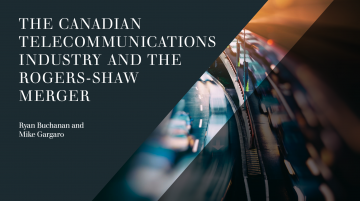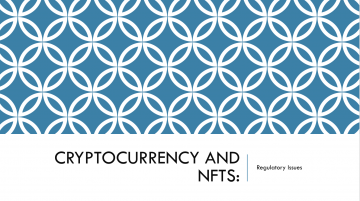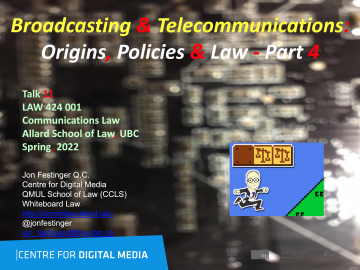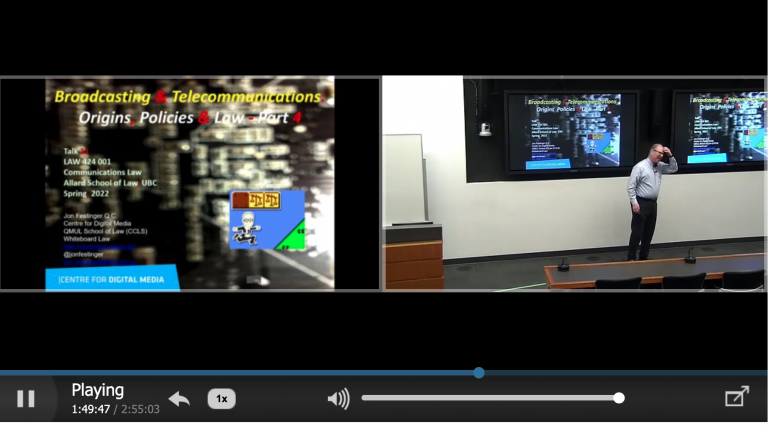This brief assignment will be discussing Russia’s use of disinformation as a war tactic. It will begin by outlining how disinformation has been defined, where such information is presented, and motivations for perpetuating such narratives. It will follow by discussing how the Russian government has been using strategies and narratives of disinformation, particularly since the invasion in Ukraine began. It will next review how this disinformation has been perpetuated in Russia. It will conclude by discussing what measures have been taken by online platforms to hinder the spread of Russian disinformation.
What is Disinformation?
Disinformation is false narratives spread by individuals with the intention to deceive or mislead others. Unlike misinformation, which stems from such information spreading by honest mistake, negligence, or unconscious bias, disinformation is particularly problematic because it can lead to the erosion of trust and distort public perceptions regarding matters of considerable significance. Such information can spread rapidly on a wide array of platforms that are available to everyday Internet users, such as blogs and websites, forums and message boards, and mainstream and social media sites.
Motivations for spreading disinformation can stem from ideology, money, and/or status and attention. Often, we see ideologically-driven disinformation spread to drive radicalization, with an intent of exploiting rebellion of opposing views via the Internet. Even when such information is debunked, it continues to shape people’s attitudes and beliefs. Money can be an incentive, as individuals may use media provocation as a means for financial gain, fame, and influence from people who believe and support such content. Status and attention is another factor, as individuals may use media to garner support from online communities via likes, shares, and comments.
The Spread of Disinformation by Russia
For years, Russia has been backing disinformation campaigns as a means of garnering support for their actions. The Communications Security Establishment (“CSE”) found that, since the invasion of Ukraine began, Russia has purported disinformation such as “Ukrainian authorities were harvesting organs from fallen soldiers and civilians, and that Russian troops were only attacking military targets in their “special operation” on Ukrainian soil”. Further, Putin has spread false information about Ukraine being run by “Nazis”, promoting stories saying that Russian protesters and opposers to the invasion were supporting neo-Nazis and genocide.
The US Department of State noted a few important themes of such disinformation. A notable one was that this information was meant to portray Russia as an innocent victim, alleging that its actions were retaliatory from the attacks from Western states. Particularly, they note that Russia has perpetuated narratives that the West’s reactions following Russia’s invasion of Ukraine were merely because people “feared and hated Russia”. Another theme was historical revisionism, meaning that Russia has been denying or distorting historical narratives that do not align with their political objectives. This was exemplified in 2020, when Putin attempted to publish information warping the story of WWII as a means of downplaying the Soviet’s role and blaming other countries for the war. A further theme has been Russia’s creation of multiple false realities as a means of generating confusion and distraction from their role in current events. This was exemplified when, in 2018, Russia attempted to skew the story of the attempted assassination of former Russian military intelligence officer, Sergei Skripal, with Russian state-funded outlets such as Russia Today and Sputnik “spreading 138 separate and contradictory narratives via 735 articles”.
As previously discussed, the motivations of the Russian government are predominately ideologically-driven, attempting to garner support for Russia’s actions through portraying themselves as the victim of the conflict and creating false realities to manipulate the truth.
How Disinformation has been Perpetuated in Russia
Through the perpetuation of such disinformation by the Russian government, they have effectively targeted individuals to act in the interests of propagandists without realizing they have done so. Through manipulation tactics utilized on the Internet, social media, and media outlets run by amateur and professional journalists, Russia has been able to ensure that such disinformation is spread rapidly, continuously, and repetitively on high numbers of channels. Russia has utilized paid internet “trolls” to undermine information that opposes Russian themes via online chat rooms, discussion forums, and comment sections on news sites. This disinformation has been able to spread rapidly given that it does not require fact checking or verification prior to being posted, as it is merely required to favour Russia’s actions. This information is then disseminated and rebroadcasted on a variety of outlets, causing this information to be repetitively published. Paul and Matthews note that this is particularly effective given the resilience of first impressions, where individuals will be more likely to “accept first information received on a topic and then favour this information when faced with conflicting information”. This is critical given the rapid and widespread disinformation perpetuated by Russia.
Measures to Hinder Disinformation
Kari Paul notes that the response from online platforms and social media sites has fallen short of what is required to hinder the spread of disinformation. Even when measures have been made, they have been poorly and inconsistently enforced. For example, YouTube enforced measures against state-sponsored disinformation, removing more than 1,000 channels and 15,000 videos, but only after it was widely viewed and shared by users. In a study by Center for Countering Digital Hate, they examined 3,593 recent articles posted by Russia state news sources, finding that Facebook was failing to label 91% of these state-sponsored posts. Paul notes that it is difficult for such platforms to effectively hinder the spread of disinformation as long as they value engagement over truth, as there is little incentive to deter such content if it is generating considerable amounts of user-traffic.
Sources
Alex Boutilier, “Canadian Intelligence Flags Russian Disinformation Campaigns Amid Ukraine War” (2022), https://globalnews.ca/news/8727605/canadian-intelligence-flags-russian-disinformation-campaigns/
Alice Marwick and Rebecca Lewis, “Media Manipulation and Disinformation Online” (2017), https://datasociety.net/wp-content/uploads/2017/05/DataAndSociety_MediaManipulationAndDisinformationOnline-1.pdf
Christopher Paul and Miriam Matthews, “The Russian ‘Firehose of Falsehood’ Propaganda Model” (2022), https://www.rand.org/pubs/perspectives/PE198.html
Don Fallis, “What is Disinformation?” (2015) 63 (3) John Hopkins University Press, https://muse.jhu.edu/article/579342/pdf?casa_token=sApgolP8eCEAAAAA:lSOr5urySzdRNJEJ3roEpBE2dxy21K456
Kari Paul, “’Game of Whac-a-Mole’: Why Russian Disinformation is Still Running Amok on Social Media” (2022), https://www.theguardian.com/media/2022/mar/15/russia-disinformation-social-media-ukraine
US Department of State, “Russia’s Top Five Persistent Disinformation Narratives” (2022), https://www.state.gov/russias-top-five-persistent-disinformation-narratives/





 Communications Law
Communications Law